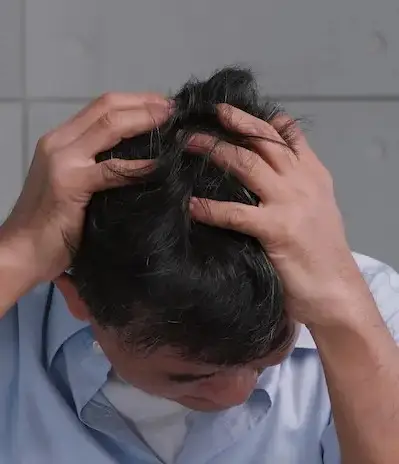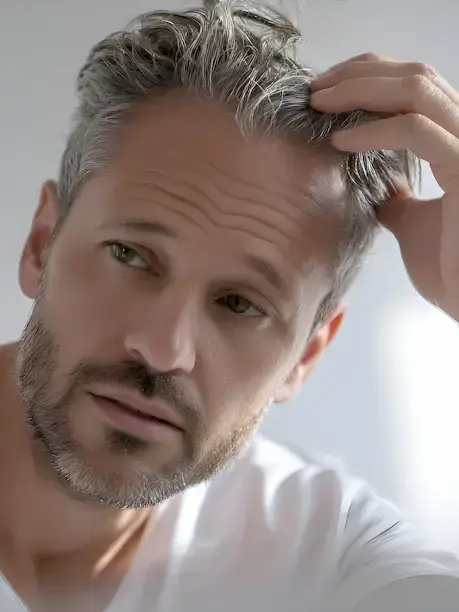Common Causes of Hair Thinning at 25
Hair thinning in your twenties can be alarming, but you’re not alone. Male pattern baldness affects approximately 20% of men in their twenties, with androgenetic alopecia being the most common cause of early hair loss.
Genetics and Hormones The primary culprit behind early hair loss is dihydrotestosterone (DHT), a hormone that shrinks hair follicles. If male pattern baldness runs in your family, you may notice thinning around the temples, crown, or hairline as early as your late teens.
Nutritional Deficiencies Iron deficiency, low protein intake, and insufficient B vitamins can contribute to hair thinning. Many young adults experience nutritional gaps due to poor eating habits, restrictive diets, or food insecurity during university years.
Stress and Lifestyle Factors High stress levels from career pressures, relationships, or major life changes can trigger telogen effluvium – temporary hair loss that typically resolves within six months of addressing the underlying stressor.
Scalp Health Issues Poor scalp hygiene, excessive use of styling products, and conditions like seborrheic dermatitis can create an unhealthy environment for hair growth. A clean, well-circulated scalp is essential for healthy hair follicles.
When to Seek Professional Help
Consult a dermatologist or trichologist if you notice:
- Sudden, patchy hair loss
- Excessive hair shedding (more than 100 strands daily)
- Scalp irritation, redness, or scaling
- Hair loss accompanied by other symptoms
Early Intervention Options
Medical Treatments Minoxidil and finasteride are FDA-approved treatments that can slow hair loss and promote regrowth when started early. These require consistent use and medical supervision.
Scalp Care and Massage Regular scalp massage improves blood circulation to hair follicles. Japanese head spa treatments combine deep cleansing with therapeutic massage techniques that may support scalp health and hair growth.
Lifestyle Modifications Maintaining a balanced diet, managing stress, getting adequate sleep, and avoiding harsh styling practices can help preserve your existing hair and create optimal conditions for growth.
The Bottom Line
Early hair loss is treatable, especially when addressed promptly. While genetics play a major role, proper scalp care, stress management, and professional guidance can help slow progression and maintain hair health throughout your twenties and beyond.



